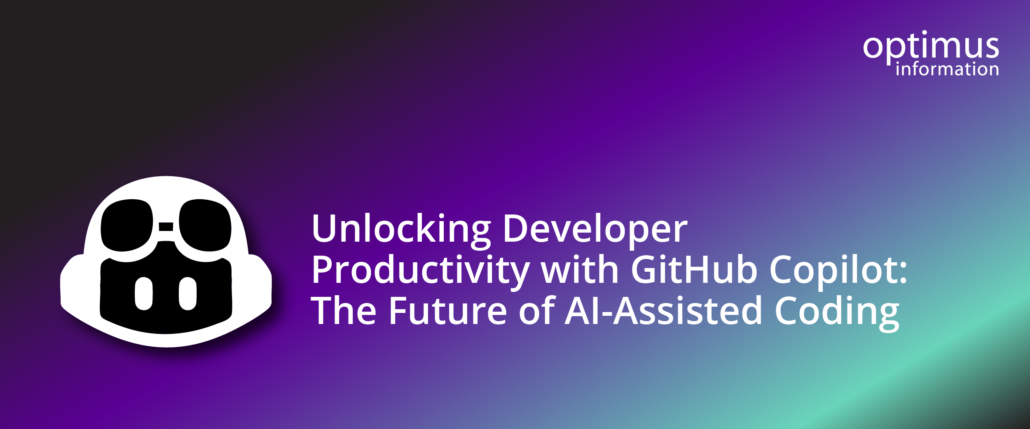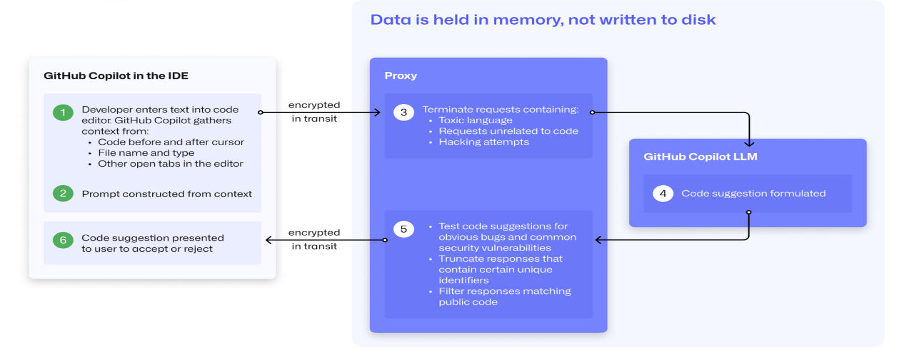Unlocking Developer Productivity with GitHub Copilot: The Future of AI-Assisted Coding

GitHub Copilot has become a game-changer for developers and organizations. Providing AI-driven code suggestions, explanations, and chat-based support, it empowers developers to work faster, smarter, and with greater accuracy.
What is GitHub Copilot?
GitHub Copilot is an AI-powered coding assistant developed by GitHub and OpenAI. Powered by GPT-3, it provides code suggestions in real-time as developers type, helping them write code more efficiently.
It is like having a pair of virtual hands working alongside you to handle routine tasks, making it an invaluable tool for both experienced developers and beginners. It enhances the developer experience at every stage of the software development lifecycle. It integrates into IDEs, GitHub.com, and command-line interfaces to offer code completions, chat support, and context-aware recommendations.
GitHub Copilot has three primary versions:
- Copilot Individual: Ideal for freelancers, students, and open-source contributors.
- Copilot Business: Designed for teams, it adds license management, policy enforcement, and stronger security.
- Copilot Enterprise: Provides personalized support by indexing your organization’s codebase for more relevant suggestions.
How GitHub Copilot Transforms Development
1. Talent Retention and Job Satisfaction
Developers want modern tools that reduce mundane tasks. By automating repetitive coding and simplifying the onboarding process for new hires, Copilot makes developers’ lives easier. Happier developers tend to stay longer, reducing hiring costs.
2. Speed and Efficiency Boost
GitHub Copilot enhances efficiency in several ways:
- Automating Repetitive Tasks: Reduces boilerplate coding, allowing developers to focus on high-impact work.
- Accelerating Learning: Helps developers quickly understand new languages, frameworks, and APIs.
- Streamlining Code Reviews: Provides automated pull request summaries and highlights key areas of change.
These capabilities significantly reduce the time spent on “code toil,” so developers can focus on innovation and problem-solving.
3. Improving Code Quality and Security
GitHub Copilot prioritizes quality and security by:
- Promoting Best Practices: Its suggestions follow established coding standards and patterns.
- Code Refactoring: It enhances code refactoring by offering optimized suggestions, improving efficiency and code quality.
- Automating Tedious Tasks: From generating documentation to creating unit tests, Copilot helps reduce developer fatigue.
- Enforcing Security Checks: Filters prevent unsafe coding practices, such as hardcoded credentials and SQL injections.
How GitHub Copilot Works

Diagram showing how the code editor connects to a proxy which connects to the GitHub Copilot LLM. Image Source: GitHub
Data Pipeline
When a developer interacts with Copilot, it collects context (like open files and highlighted code) and builds a prompt. This prompt is sent to a secure Large Language Model (LLM) that processes it and returns suggested completions.
Safeguards and Filters
Before suggestions are presented, they undergo checks for quality, toxicity, and relevance. If any issues are found—like the presence of unique identifiers or security vulnerabilities—the suggestions are discarded.
User Control
Developers have control over which suggestions to accept, and they can enable filters to prevent Copilot from generating code that matches public repositories. This option strengthens code originality and reduces licensing risks.
Measuring Copilot’s Impact on Your Organization
GitHub suggests a four-stage process for evaluating Copilot’s return on investment (ROI):
- Evaluation: Conduct developer surveys and usage analysis.
- Adoption: Enable more teams and measure active user engagement.
- Optimization: Focus on system-level goals, like faster releases or better code quality.
- Sustained Efficiency: Continuously improve processes and policies as team needs evolve.
Did you know? Organizations report up to a 55% reduction in coding time when using GitHub Copilot!
Governance, Policy, and Compliance
Organizations should create an AI policy framework to ensure the proper use of Copilot. A good policy should address:
- Data Privacy: Ensure developers understand how data is processed and stored.
- Accountability: Developers remain responsible for AI-generated code.
- IP Protection: Mitigate risks related to reusing public code snippets.
- Training and Guidance: Teach developers how to get the most out of Copilot’s capabilities.
How to Roll Out GitHub Copilot
To maximize Copilot’s impact, GitHub recommends a six-step rollout strategy:
- Start with Training: Provide resources to teach developers how to use Copilot effectively.
- Offer Self-Service Access: Allow developers to activate Copilot licenses without admin overhead.
- Reinforce Usage: Send reminders and share success stories.
- Monitor Usage: Use metrics like daily active users, acceptance rates, and pull request activity.
- Optimize with Feedback: Survey users and collect feedback for continuous improvement.
- Document Policy: Ensure clear guidance for responsible AI usage.
Is GitHub Copilot a Threat to Developers?
There has been some concern in the developer community regarding AI tools like GitHub Copilot replacing human developers. However, GitHub Copilot is not intended to replace developers but to complement their skills and workflows, it is truly a “CoPilot”
It is a productivity tool that helps developers code faster, more efficiently, and more accurately. Copilot automates repetitive tasks but still relies on human developers for critical thinking, creativity, and problem-solving.
Conclusion
GitHub Copilot is a game-changing tool for developers. It enhances productivity and provides smart code suggestions powered by artificial intelligence. By automating mundane tasks and providing intelligent code suggestions, Copilot frees developers to focus on more complex aspects of their projects. Whether you are a seasoned pro or a beginner, GitHub Copilot can help you write better code faster.
As the tool continues to evolve, we can expect even greater enhancements in AI-assisted coding, making it an essential part of modern development workflows.
Embrace the future of coding with GitHub Copilot and experience a new level of productivity and creativity.
Start your GitHub Copilot journey today and see the transformation firsthand.
About the Author
Naveen Pratap Singh is a results-driven project/program management professional with over 10 years at Optimus Information. Known for transforming complex challenges into actionable solutions, he specializes in capacity planning, risk mitigation, and delivering high-impact software solutions across technologies like Azure, AWS, .NET, and DevOps.



